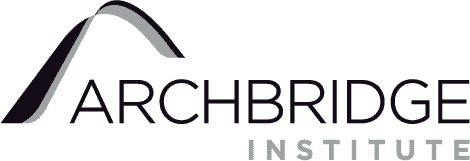
In this edition of Progress Pulse, we explore Americans’ attitudes about the role of the United States in advancing human progress. Do Americans believe U.S. leadership, culture, business, and science have played an essential role in advancing positive change in the world? Do they believe this will be the case going forward?
To find out, we commissioned a survey, conducted by The Harris Poll, among a nationally representative sample of over 2,000 U.S. adults.
Overall Findings
Most Americans view the U.S. as a key driver of global progress. Three-quarters or more agree that America’s global leadership (75%), cultural emphasis on optimism and possibility (76%), and business achievements (78%) have been crucial for advancing positive change around the world. Even more Americans (84%) believe the nation’s scientific research has been essential for positive change around the world. Finally, nearly 8 in 10 (79%) agree that going forward, America’s contributions will remain vital for human progress.
These attitudes about America’s instrumental role in human progress are widespread across gender, age, education, income, and political categories. However, we did observe some differences between these groups.
Demographics and Belief in American Global Leadership as a Progress Driver
When it comes to believing in America’s global leadership as a driver of progress, there are notable differences across age, education, and political affiliation. Adults 65 and over are the most inclined and adults under 25 are the least inclined to agree that American leadership has been crucial for advancing positive change around the world. This view of American leadership is positively associated with formal education. Republicans are more likely to hold this view than Democrats and Independents.
Gender (percent strongly/somewhat agree)
- Men: 76%
- Women: 74%
Age (percent strongly/somewhat agree)
- 18-24: 59%
- 25-34: 72%
- 35-44: 77%
- 45-54: 76%
- 55-64: 72%
- 65+: 84%
Education (percent strongly/somewhat agree)
- High school or less: 69%
- Some college: 71%
- College graduates: 83%
Household Income (percent strongly/somewhat agree)
- Income less than $50k: 72%
- Income $50k to $74,9k: 65%
- Income $75k to $99,9k: 75%
- Income $100k or more: 79%
Political Party (percent strongly/somewhat agree)
- Democrats: 74%
- Republicans: 83%
- Independents: 72%
Demographics and Belief in American Culture as a Progress Driver
When it comes to believing in American culture as a driver of progress, there are notable differences across age, education, and political affiliation. Adults 65 and over are the most inclined and adults under 25 are the least inclined to agree that American culture’s emphasis on optimism and possibility has played a central role in promoting positive change around the world. This view of American culture is positively associated with formal education. Republicans are more likely to hold this view than Democrats and Independents.
Gender (percent strongly/somewhat agree)
- Men: 76%
- Women: 76%
Age (percent strongly/somewhat agree)
- 18-24: 71%
- 25-34: 74%
- 35-44: 76%
- 45-54: 74%
- 55-64: 74%
- 65+: 84%
Education (percent strongly/somewhat agree)
- High school or less: 69%
- Some college: 76%
- College graduates: 83%
Household Income (percent strongly/somewhat agree)
- Income less than $50k: 75%
- Income $50k to $74,9k: 71%
- Income $75k to $99,9k: 74%
- Income $100k or more: 80%
Political Party (percent strongly/somewhat agree)
- Democrats: 76%
- Republicans: 83%
- Independents: 73%
Demographics and Belief in American Business as a Progress Driver
When it comes to believing in American business as a driver of progress, there are notable differences across age, education, income, and political affiliation. Adults 65 and over are the most inclined and adults under 25 are the least inclined to agree that American business achievements have been crucial for advancing positive change globally. This view of American business is positively associated with formal education. Individuals with household incomes of $100,000 or more are more likely to hold this view than those in lower income groups. Republicans are more likely to hold this view than Democrats and Independents.
Gender (percent strongly/somewhat agree)
- Men: 79%
- Women: 78%
Age (percent strongly/somewhat agree)
- 18-24: 67%
- 25-34: 76%
- 35-44: 79%
- 45-54: 75%
- 55-64: 78%
- 65+: 88%
Education (percent strongly/somewhat agree)
- High school or less: 72%
- Some college: 77%
- College graduates: 85%
Household Income (percent strongly/somewhat agree)
- Income less than $50k: 72%
- Income $50k to $74,9k: 75%
- Income $75k to $99,9k: 76%
- Income $100k or more: 84%
Political Party (percent strongly/somewhat agree)
- Democrats: 78%
- Republicans: 85%
- Independents: 77%
Demographics and Belief in American Science as a Progress Driver
When it comes to believing in American science as a driver of progress, there are notable differences across age and education. Adults 65 and over are the most inclined and adults under 25 are the least inclined to agree that American scientific research has been essential for positive change around the world. This view of American science is positively associated with formal education. Republicans and Democrats are equally likely, and Independents are less likely, to hold this view.
Gender (percent strongly/somewhat agree)
- Men: 84%
- Women: 84%
Age (percent strongly/somewhat agree)
- 18-24: 73%
- 25-34: 80%
- 35-44: 84%
- 45-54: 84%
- 55-64: 85%
- 65+: 92%
Education (percent strongly/somewhat agree)
- High school or less: 80%
- Some college: 82%
- College graduates: 89%
Household Income (percent strongly/somewhat agree)
- Income less than $50k: 82%
- Income $50k to $74,9k: 83%
- Income $75k to $99,9k: 79%
- Income $100k or more: 86%
Political Party (percent strongly/somewhat agree)
- Democrats: 87%
- Republicans: 87%
- Independents: 81%
Demographics and Belief that America Will Be a Future Progress Driver
When it comes to America’s role as a future driver of progress, there are notable differences across age, education, and political affiliation. Adults 65 and over are the most inclined and adults under 25 are the least inclined to agree that going forward, America’s contributions will remain vital for positive change around the world. This view of America as a future driver of global progress is positively associated with formal education. Republicans are more likely to hold this view than Democrats and Independents.
Gender (percent strongly/somewhat agree)
- Men: 78%
- Women: 80%
Age (percent strongly/somewhat agree)
- 18-24: 69%
- 25-34: 76%
- 35-44: 79%
- 45-54: 80%
- 55-64: 78%
- 65+: 87%
Education (percent strongly/somewhat agree)
- High school or less: 76%
- Some college: 78%
- College graduates: 83%
Household Income (percent strongly/somewhat agree)
- Income less than $50k: 74%
- Income $50k to $74,9k: 76%
- Income $75k to $99,9k: 75%
- Income $100k or more: 84%
Political Party (percent strongly/somewhat agree)
- Democrats: 75%
- Republicans: 88%
- Independents: 79%
Methodology
This survey was conducted online within the United States by The Harris Poll on behalf of the Human Flourishing Lab from July 15-17, 2025, among 2,080 adults ages 18 and older. The sampling precision of Harris online polls is measured by using a Bayesian credible interval. For this study, the sample data is accurate to within +/- 2.5 percentage points using a 95% confidence level. For complete survey methodology, including weighting variables and subgroup sample sizes, please contact croutledge@archbridgeinstitute.org
Respondents were presented with the following prompts:
- American global leadership has been crucial for advancing positive change around the world.
- American culture’s emphasis on optimism and possibility has played a central role in promoting positive change around the world.
- American business achievements have been crucial for advancing positive change globally.
- American scientific research has been essential for positive change around the world.
- Going forward, America’s contributions will remain vital for positive change around the world.
Respondents were asked to indicate whether they strongly disagree, somewhat disagree, somewhat agree, or strongly agree with each prompt.
Progress Pulse
Progress Pulse is a data-driven research project of the Human Flourishing Lab exploring views about progress. We conduct regular surveys of the American people on questions related to human advancement, emerging technologies, and visions of the future.
Clay Routledge, PhD, is Executive Vice President and Chief Operating Officer (COO) at the Archbridge Institute, where he also leads the institute’s Human Flourishing Lab. As a thought leader in existential psychology and human motivation, Clay translates research into practical insights that help people reach their full potential, build meaningful lives, and advance human progress and flourishing. Dr. Routledge received his Ph.D. in psychology from the University of Missouri-Columbia. He is co-editor of Profectus Magazine, an online publication dedicated to human progress and flourishing. He writes the weekly newsletter "Flourishing Friday."





